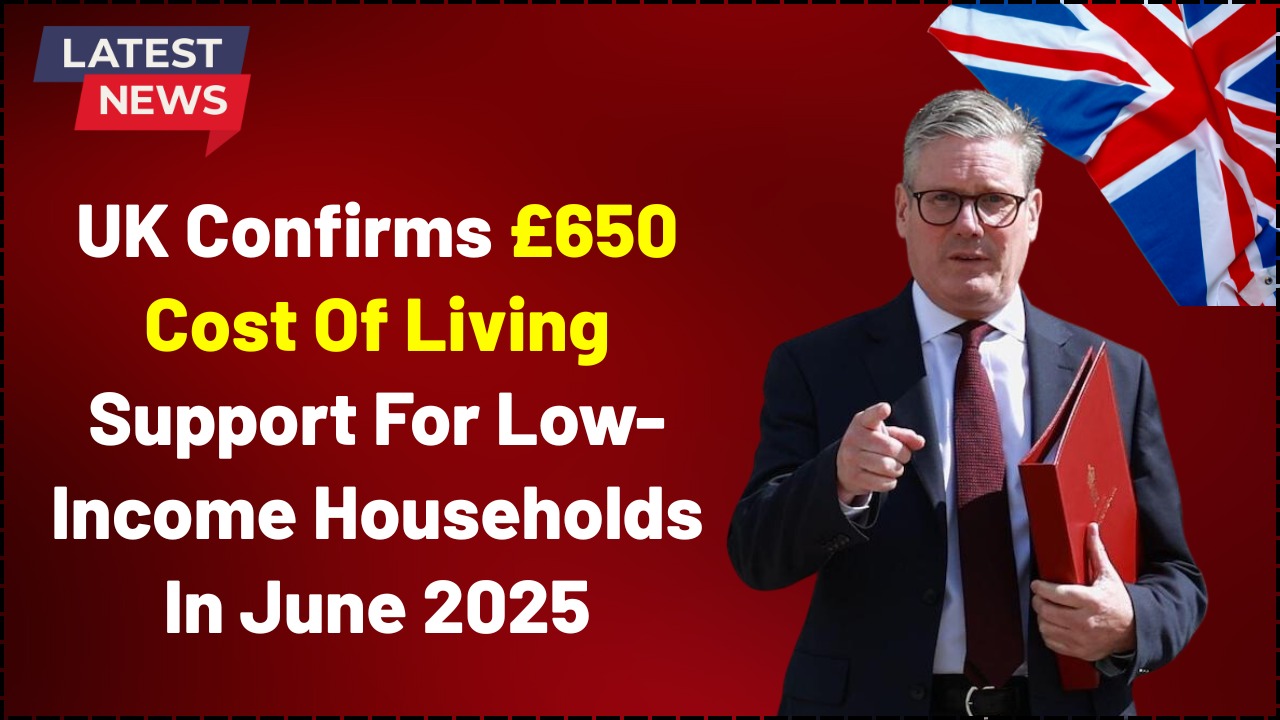
In a new round of support aimed at easing the pressures of rising living expenses, the UK government has once again extended the Household Support Fund (HSF), offering targeted financial help to low-income households—including those not receiving traditional benefits.
Running from April 2025 to March 2026, this extension of the HSF allows local councils to distribute funds directly to those who are most in need. The amount of support available varies by council, with some households able to access up to £600 in aid, depending on their family circumstances, financial hardship, and where they live.
What makes this scheme particularly significant is that you do not need to be on Department for Work and Pensions (DWP) benefits to receive this help. This opens the door to thousands of struggling households who may otherwise have been excluded from direct government financial relief.
Table of Contents
Overview
| Category | Details |
|---|---|
| Program Name | Household Support Fund (HSF) |
| Active Dates | April 2025 – March 2026 |
| Eligible Groups | Low-income households, even if not on DWP benefits |
| Sample Amount in Richmond | Up to £600 |
| Sample Amount in Camden | Up to £500 |
| Use of Funds | Food, utilities, clothing, school items, emergencies |
| Application Requirement | Yes – through your local council |
| Age Requirement | 18 and over |
| Residency Requirement | Lived in borough at least six weeks |
| Source | Click Here |
Key Locations Offering £600 or More
Local authorities play a central role in distributing these funds, and each borough or council sets its own criteria, application process, and payment limits based on its allocation from the central government.
Richmond upon Thames
Residents of Richmond, London, are among those who can benefit from this latest round of HSF funding. Eligible households can apply for up to £600, which can be used to offset:
- Food and grocery costs
- Utility bills (electricity, gas, water)
- Essential clothing and shoes
- Heating costs or small household appliances
Camden
In Camden, another London borough, the amount available per household can reach £500, depending on specific family circumstances and household income levels.
While the amounts may differ, the goal across councils remains the same: to provide non-benefit-receiving households with urgent and flexible financial help that can be used for daily living expenses.
What Can the £600 Payment Be Used For?
One of the most useful aspects of the HSF is its flexibility. It is not restricted to a narrow set of uses. Instead, it is designed to meet a variety of urgent financial needs. Successful applicants can receive vouchers, prepaid cards, or bank transfers, depending on the council’s disbursement system.
Common permitted uses include –
- Paying overdue utility bills (gas, electric, water)
- Purchasing school uniforms or children’s supplies
- Buying food or groceries
- Covering essential clothing or winter wear
- Purchasing heating appliances or fuel
Councils may also offer support in the form of vouchers for supermarkets or utility companies, or arrange for the direct supply of essentials like food boxes or hygiene kits.
Sample Support by Council Area
| Council Area | Support Amount | Use of Funds | Eligibility Highlights |
|---|---|---|---|
| Richmond upon Thames | Up to £600 | Food, energy bills, clothing, essential items | Must live in the borough for 6+ weeks, aged 18+ |
| Camden | Up to £500 | General household support for urgent needs | Financial proof required, not on DWP benefits |
| Other UK Councils | Varies (approx. £250–£600) | Depends on council resources and criteria | Residency, income evidence, and urgent need apply |
How to Apply
Applying for Household Support Fund assistance is relatively simple but differs from council to council. Here’s what the process typically looks like:
1. Visit your local council’s official website
You can search your borough on the GOV.UK site to get redirected.
2. Fill out an application form
Most councils offer an online form where you input details such as your household size, income, expenses, and the support you’re requesting.
3. Upload supporting documents
These usually include:
- A copy of a recent bank statement
- Proof of address (such as a utility bill)
- ID verification (e.g., passport, driving licence)
4. Wait for a decision
Applications are typically reviewed within 2–3 weeks. Some councils fast-track cases deemed as emergencies.
- Receive payment or voucher
If approved, the support may be issued as a cash deposit, prepaid card, or voucher, depending on your council’s system.
Final Thoughts
With the cost of living continuing to climb and more families struggling to make ends meet, the Household Support Fund offers a lifeline to those in financial difficulty—especially those who don’t receive standard benefits.
From Richmond to Camden and beyond, local councils across the UK are stepping in to make sure that help reaches everyone who needs it—not just those on government benefits. If you meet the residency and financial need criteria, don’t hesitate to apply. The support is there for you.
FAQs
Q1: Can I get the £600 support if I’m not on Universal Credit or other benefits?
A = Yes, the Household Support Fund is open to low-income individuals who are not receiving benefits.
Q2: Is the payment issued automatically?
A = No, you need to apply through your local council and meet the eligibility criteria.
Q3: How long does it take to receive the support?
A = Most councils process applications within 2–3 weeks, depending on urgency and available funds.
Q4: What if I live outside London—can I still apply?
A = Yes, the Household Support Fund is available across the UK, though the amount may vary by location.







